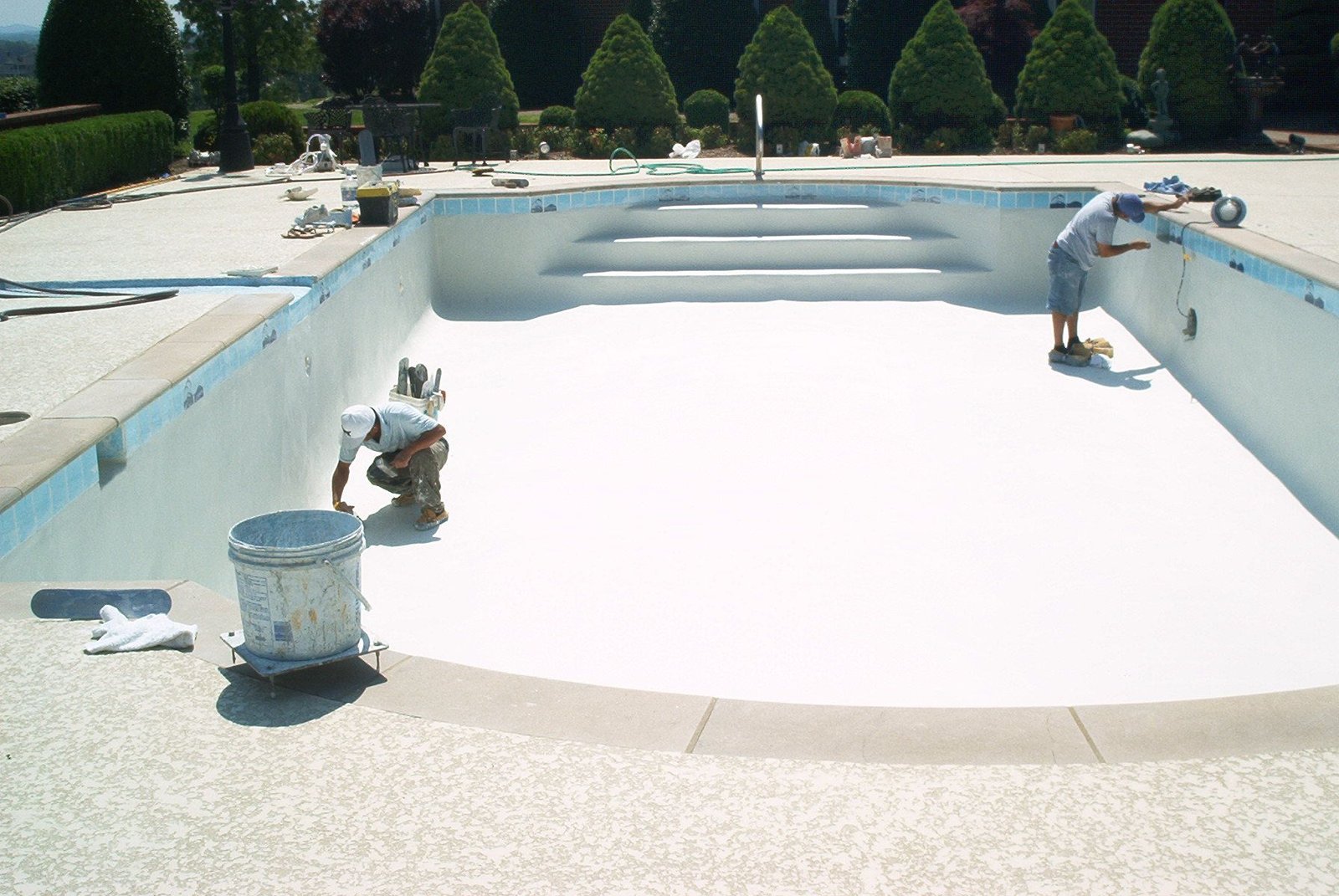Having a pool is a wonderful addition to any home, providing a refreshing oasis during hot summer days and a gathering place for family and friends. However, maintaining a pool requires effort and dedication to ensure it stays in top condition. In this comprehensive guide, we’ll explore essential pool maintenance tips that will help you keep your pool crystal clear and inviting throughout the year.
The Basics of Pool Maintenance
Regular Skimming and Cleaning
The first step in effective pool maintenance is regular skimming and cleaning. Use a skimmer net to remove leaves, debris, and bugs from the water’s surface. This not only keeps the pool looking clean but also prevents these contaminants from sinking to the bottom, making it easier to maintain water balance.
Vacuuming
Invest in a quality pool vacuum to remove dirt and debris that may settle on the pool floor. Vacuuming should be done at least once a week to maintain a pristine pool environment. Automatic pool cleaners are also available, making this task even more convenient.
Brushing and Scrubbing
Brushing the pool walls and floor is crucial to prevent algae and other buildup. Use a pool brush to scrub away any algae or scale formation. This helps in distributing pool chemicals more effectively and keeps the surfaces smooth and clean.
Monitor Water Level
Check the water level regularly, ensuring it stays at the recommended level. If it’s too low, it can strain the pool pump, while too high can impede proper skimming. Maintain the water level for optimal pool performance.
Water Chemistry and Balance
pH Levels
Maintaining the proper pH level of your pool water is vital for both the pool equipment and swimmers’ comfort. The ideal pH range is between 7.4 and 7.6. Use a pH testing kit regularly and adjust as needed with pH increasers or decreasers.
Chlorine Levels
Chlorine is a key component in keeping your pool water sanitized and safe for swimming. Test chlorine levels regularly and add chlorine tablets or liquid as necessary. Shock treatments may also be required to address bacteria and algae buildup.
Alkalinity and Calcium Hardness
Balancing alkalinity and calcium hardness is essential for preventing corrosion and scaling in your pool. Test these levels regularly and make adjustments using the appropriate chemicals to keep the water chemistry in check.
Stabilize Your Pool
Stabilizers like cyanuric acid help prevent chlorine from breaking down due to sunlight exposure. Maintain the recommended stabilizer levels to ensure the effectiveness of your chlorine, reducing the need for frequent adjustments.
Equipment Maintenance
Regularly Inspect the Pool Pump and Filter
The pool pump and filter are the heart of your pool’s circulation system. Regularly inspect and clean the pump basket, and backwash the filter as needed to maintain optimal water flow.
Clean the Skimmer and Pump Baskets
Clean skimmer and pump baskets regularly to ensure proper water circulation. Clogged baskets can impede water flow, affecting the efficiency of the pool pump.
Inspect and Clean the Pool Filter
A clean filter is crucial for removing impurities from the water. Follow the manufacturer’s guidelines for cleaning or replacing your pool filter. Regular maintenance enhances filtration efficiency.
Check for Leaks
Regularly inspect your pool for any signs of leaks. Leaks not only waste water but can also lead to more significant structural issues. Promptly address any leaks to avoid costly repairs.
Seasonal Pool Maintenance
Winterization
If you live in an area with cold winters, properly winterize your pool to prevent damage from freezing temperatures. This may include draining water to the appropriate level, using winterization chemicals, and covering the pool securely.
Opening Your Pool for Summer
When warmer weather arrives, it’s time to open your pool for the summer season. Remove the cover, clean and balance the water, and ensure all equipment is functioning correctly. This sets the stage for a season of enjoyable swimming.
Regular Professional Inspections
Consider scheduling regular professional inspections to ensure that all aspects of your pool, from the pump and filter to the pool’s structure, are in good condition. Professionals can identify potential issues before they become major problems.
Safety Measures
Install a Pool Fence
Safety should always be a top priority, especially if you have children or pets. Install a secure pool fence with a self-latching gate to prevent unauthorized access and enhance overall safety.
Learn CPR
Being prepared for emergencies is crucial. Take a CPR course to ensure you’re equipped with the skills needed in case of a poolside emergency.
Advanced Pool Care Techniques
Pool Shocking
Regularly shocking your pool is a crucial step in keeping the water clear and free of contaminants. Pool shock treatments help break down organic matter and eliminate bacteria. Follow product instructions carefully to determine the appropriate dosage for your pool size.
Use a Pool Cover
Investing in a high-quality pool cover is a wise decision. A cover not only prevents debris from entering the pool but also helps in retaining heat, reducing evaporation, and lowering chemical consumption. It also acts as an additional safety measure, especially during the off-season.
Consider a Saltwater System
For a more low-maintenance approach to pool care, consider installing a saltwater chlorination system. These systems use salt to produce chlorine, reducing the need for manual chlorine application. Saltwater pools are also known for being gentler on the skin and eyes.
Environmental Factors and Pool Maintenance
Monitor Sunscreen Usage
If your pool is frequently used, especially by guests, be mindful of sunscreen application. Sunscreen can contribute to increased levels of oil and debris in the pool water. Encourage swimmers to shower before entering the pool to minimize these contaminants.
Landscaping Considerations
Surrounding landscaping can impact your pool’s cleanliness. Trim overhanging trees and bushes regularly to minimize the amount of leaves and debris falling into the pool. Additionally, avoid planting trees with invasive root systems near the pool services to prevent potential damage.
Rainwater Management
Heavy rain can dilute pool chemicals and disrupt water balance. Monitor weather forecasts and be prepared to adjust chemical levels after a significant rainfall. Consider investing in a rain diverter or cover to minimize the impact of rainwater on pool chemistry.
Troubleshooting Common Pool Issues
Dealing with Algae
Algae can quickly turn a pristine pool into a green mess. Regular brushing, proper filtration, and maintaining adequate chlorine levels can prevent algae growth. If algae persist, use algaecides and follow up with shock treatments.
Cloudy Water Solutions
Cloudy water is often a result of imbalanced chemistry or poor filtration. Check and adjust pH, chlorine, and alkalinity levels accordingly. Additionally, clean or backwash the filter and ensure proper water circulation to restore clarity.
Addressing Pump Issues
If you notice a drop in water circulation or unusual noises coming from the pump, inspect it promptly. Check for clogs, leaks, or any visible damage. Regular maintenance and prompt repairs will extend the life of your pool pump.
Conclusion
Owning a pool comes with the responsibility of proper maintenance. By following these pool maintenance tips, you can ensure that your pool remains a clean, safe, and enjoyable space for family and friends. Regular attention to cleaning, water chemistry, equipment maintenance, and safety measures will contribute to the longevity and quality of your pool, providing you with countless hours of relaxation and recreation. Remember, a well-maintained pool is not just aesthetically pleasing but also a healthier environment for everyone who takes a dip. sprunki horror Endless Fun Awaits!



